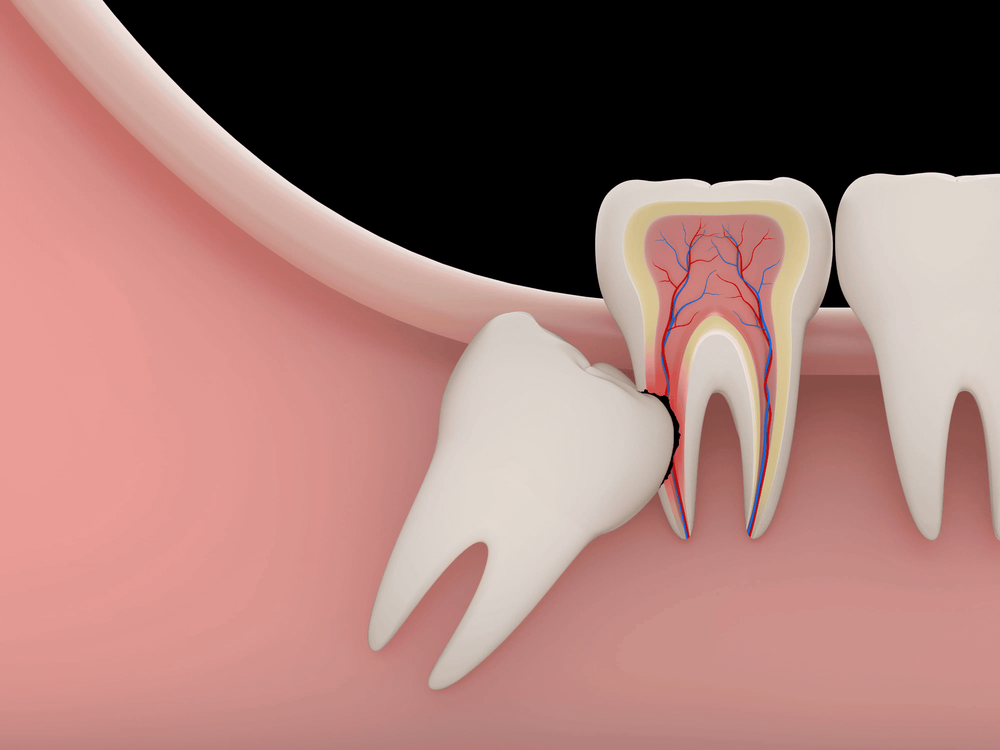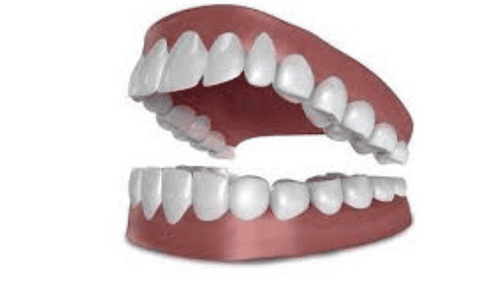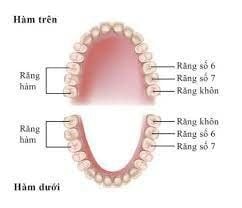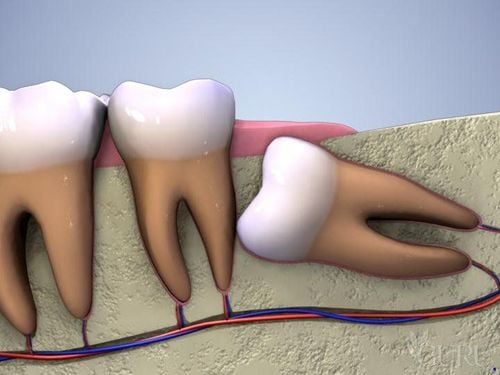This is an automatically translated article.
Because the 8th tooth erupts late when the jaw organization is fixed, there is often not enough space for the tooth to grow, causing many complications leading to the removal of the 8th tooth. Extracting the 8th tooth is one of the surgeries. common in dentistry, but in order to have the most favorable tooth extraction, special attention should be paid to post-extraction care.
1. What is tooth 8?
8 is also known as wisdom tooth because this is the last tooth to grow in the jaw and grow when we are adults. Number 8 teeth usually come in at the age of 17 to 25 years old, and most of us have all 4 8 teeth.
Because 8 teeth come in late when the other teeth have fully erupted, there is not much space left in the jaw. for tooth number 8. From there, it is easy to lead to tooth number 8 being misaligned, growing underground or just popping up a little, being covered by gums causing uncomfortable pain. In addition, tooth number 8 is located deep in the oral cavity, so it is quite difficult to clean teeth that are prone to cavities or gum problems.
2. When is there an indication to extract the 8th tooth?
8 molars are indicated for extraction in some of the following cases:
8 molars erupt causing complications such as severe pain, severe pain, repeated infections, cysts, eruptions that affect teeth No. 7. Wisdom teeth that grow underground are also indicated for removal to avoid affecting surrounding organizations. The eruption of the 8th tooth cannot be recognized with the naked eye, but it needs to be taken through a film. When the 8th molar has not caused complications, but will affect the 7th tooth in the future, there is also an indication to extract the 8th molar to prevent complications from damaging the 7th tooth. The 8th molars grow straight, unobstructed by bone and gums, but the opposite jaw has no teeth to match, making the 8th molars protrude down the opposite side. Facilitates sprinkling and affects the opposing gum. The teeth grow normally but the shape of the 8 molars is abnormal, which can be small, deformed, causing food to be sprinkled with the adjacent teeth, causing tooth decay and periodontitis of the adjacent teeth for a long time. The wisdom teeth themselves have severe periodontal disease or caries. Extraction of the 8th molars in cases of orthodontics, dentures, or 8th molars that are the cause of some other systemic diseases should also be removed. To know if it is necessary to remove the 8th tooth or not, it is necessary to visit and do paraclinical tests.

Một số trường hợp người bệnh cần được chỉ định nhổ răng 8
3. Is there any complication of tooth extraction No. 8?
Extracting wisdom teeth is a common surgery, now thanks to modern machinery conditions, risks are reduced, but can lead to some risks such as:
Infection: Infection can occur due to improper care after tooth extraction 8. Common signs are high fever, yellow or white discharge from the wound, non-healing wound, persistent pain and swelling. Sepsis: From the source of infection in the tooth, it can lead to sepsis if not treated or treated incorrectly. Expression of high fever, shivering, fast, small pulse... Inflammation of wisdom tooth socket: It manifests as a dull pain in the gums or jaw, sometimes with a bad smell from the empty socket. Usually happens if you don't take care of your teeth properly. Nerve damage: Nerve damage from wisdom tooth extraction can cause symptoms such as tingling or numbness in the tongue, lower lip, teeth, and gums. This symptom is usually short-lived, but rarely is it permanent. To minimize the occurrence of complications, it is necessary to have a thorough examination before tooth extraction and assess risk factors, as well as care after tooth extraction.
4. Notes when extracting tooth number 8
In order to limit the complications after tooth extraction, how to take care of it is very important. Some notes after tooth extraction include:
Bite firmly on the gauze. The day after your tooth extraction, the doctor will put a gauze on the wound to stop the bleeding. Bite on the gauze to apply pressure to stop the bleeding. New gauze can be changed if the old gauze gets wet a lot, but this is limited in practice. Because if you change too much, it will interfere with the blood clotting process. Do not talk much as this can cause more bleeding. Do not touch the tooth extraction site with your tongue, other objects or fingers, avoid blowing your nose, sneezing or trying not to cough as this can cause the wound to bleed again. Take pain relievers and reduce edema: After extraction of tooth 8 will cause pain and swelling, so take pain relievers and reduce swelling antibiotics according to the instructions of the doctor to ensure safety. You can apply ice: Applying an ice pack on the outside of the extracted tooth helps to stop bleeding and reduce swelling by constricting blood vessels. Apply ice pack for 10-20 minutes. Gargle with warm salt water: Use warm salt water to gargle the morning after the tooth extraction. Note that when rinsing, it should be slow and gentle, then gently spit out the salt water to avoid touching the blood clot. In the following days, you should gargle with warm salt water about 4-5 times a day, especially after eating and before going to bed. Get plenty of rest: Do not engage in any physical activity for at least two days after tooth extraction, and raise the head slightly when resting or sleeping to ensure that fluid or saliva does not cause the patient to choke. . Careful oral hygiene: 24 hours after tooth extraction, gently brush your teeth and tongue, but do not bring the brush near the location of the extracted tooth Dietary note: Start eating after the work is done. use of anesthetics. And need to pay attention Should start with soft foods. Avoid hard or hot foods; Avoid using a straw or sucking as this can dislodge blood clots from the gums. Eat regularly and nutritiously without skipping meals. Eat cold or cold food, do not eat warm or hot food. Gradually shift your diet from liquid foods to solid foods and finally starting with solid foods after a few days. Avoid spicy foods, sticky foods, hot drinks, caffeinated beverage products, alcohol, soft drinks. Avoid smoking and drinking alcohol for at least 24 hours after tooth extraction. You should contact your doctor as soon as any abnormalities occur.

Người bệnh nên chọn cơ sở y tế uy tín để nhổ răng 8
Post-extraction care is important to help limit the risk of possible complications. So you need to strictly follow the doctor's orders to limit the unfortunate complications that may occur.
Dental - Jaw - Facial - Vinmec International General Hospital specializes in examining and treating all common dental problems in adults and children. The hospital has a team of qualified doctors and dentists and a system of advanced machinery to help support the examination process well and shorten the time.
Therefore, when there is any problem, you can go to the hospital to be checked for appropriate instructions from a specialist doctor. Avoiding leaving for a long time will affect the structure and aesthetics of the teeth.
Please dial HOTLINE for more information or register for an appointment HERE. Download MyVinmec app to make appointments faster and to manage your bookings easily.













